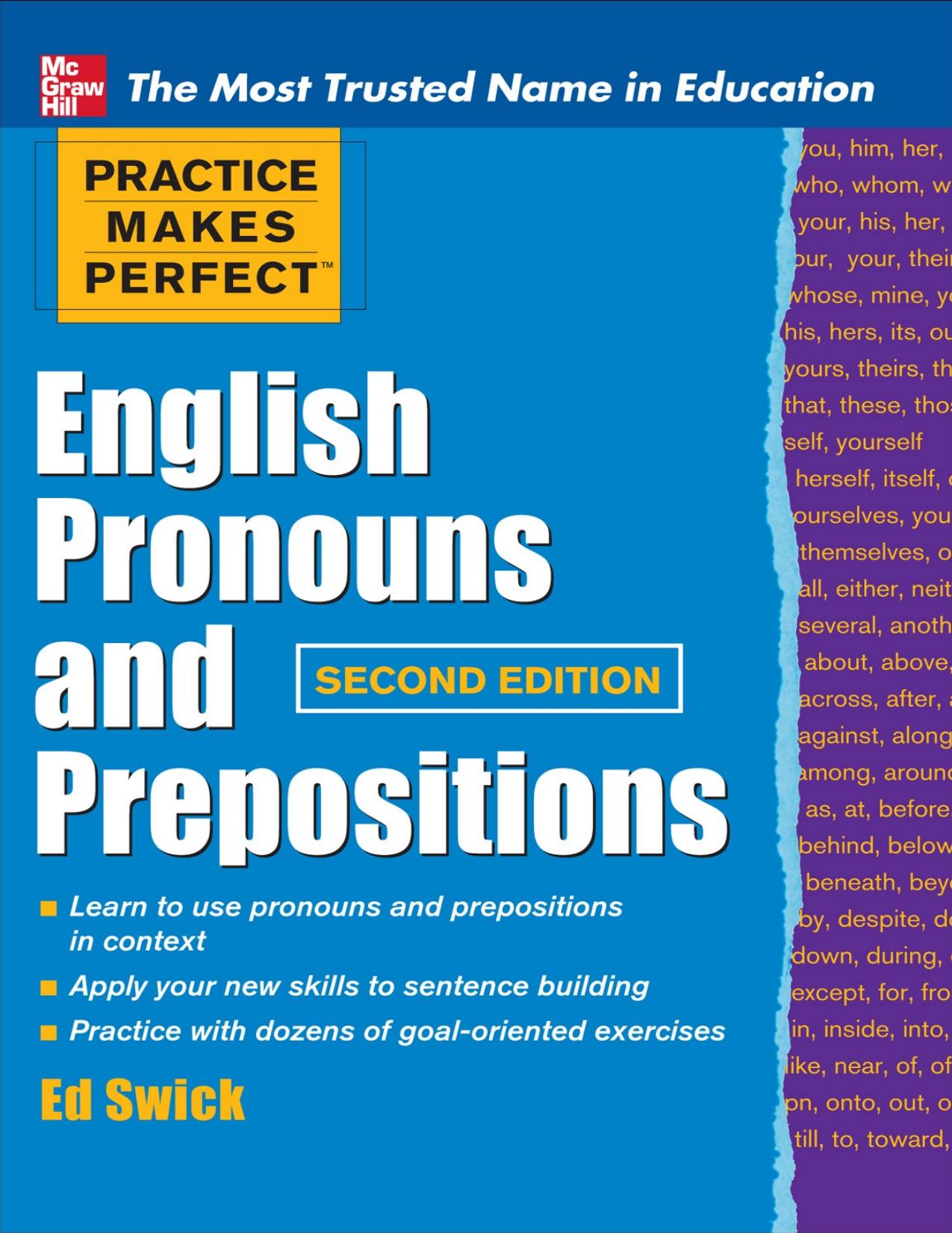English Pronouns and Prepositions by Ed Swick

Author:Ed Swick
Language: eng
Format: epub, pdf
Publisher: McGraw-Hill Education
Published: 2011-02-22T16:00:00+00:00
Come
You’re already familiar with this verb of motion that means “to approach, to move toward, or to arrive.” Its conjugation is irregular and has these principal parts:
Four distinct meanings are derived from the phrasal verb to come through (for) (with): (1) to endure or survive, (2) to be approved by some official body or institution, (3) to perform a helpful service for someone, and (4) to produce something that has been promised. Check these examples:
Somehow they came through the storm without a scratch.
Your loan came through and you’ll receive a check in the mail.
Mom always came through for me whenever I had a problem.
Tom will never come through with the money he promised.
With the particle to, come to has a simple new meaning: to become conscious again or to wake up:
Her eyes opened and she slowly came to.
The old man fell asleep and never came to again.
The verb to come up with means “to find someone or something that someone needs.” Look at these examples:
I’ll try to come up with a piano player for your party.
She came up with another good idea.
The phrasal verb to come upon means “to happen upon someone or something.” The particle on is sometimes used in place of upon:
When she comes on her brother, she’ll have the shock of her life.
I came upon an interesting book in the library.
Download
English Pronouns and Prepositions by Ed Swick.pdf
This site does not store any files on its server. We only index and link to content provided by other sites. Please contact the content providers to delete copyright contents if any and email us, we'll remove relevant links or contents immediately.
Housekeeping by Marilynne Robinson(3424)
The Poetry of Pablo Neruda by Pablo Neruda(3375)
Papillon (English) by Henri Charrière(3283)
World without end by Ken Follett(3016)
TCP IP by Todd Lammle(2648)
Fluent Forever: How to Learn Any Language Fast and Never Forget It by Gabriel Wyner(2457)
The Rape Of Nanking by Iris Chang(2332)
The Alchemist by Paulo Coelho(2309)
How Proust Can Change Your Life by Alain De Botton(2269)
The Partner by John Grisham(1989)
Two lives by Helen Naylor(1950)
Hitler by Ian Kershaw(1759)
Yerma by Federico García Lorca(1646)
Smilla's Sense of Snow by Peter Hoeg(1621)
Merriam-Webster's Pocket Dictionary by Merriam-Webster(1571)
Il cavaliere inesistente by Italo Calvino(1556)
Sophie's World by Jostein Gaarder(1552)
Deep Writing by Eric Maisel(1529)
Twilight of Idols and Anti-Christ by Friedrich Nietzsche(1499)
